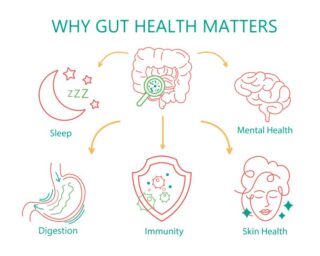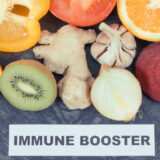Creating a Diet Plan for Hypothyroidism: What You Need to Know

Hypothyroidism is a condition where the thyroid gland is underactive, leading to a slower metabolism and various health issues. Creating a diet plan tailored for hypothyroidism can help manage symptoms and improve overall health. Here’s what you need to know.
Understanding Hypothyroidism
Causes and Symptoms:
- Causes: Autoimmune diseases (like Hashimoto’s thyroiditis), iodine deficiency, certain medications, and radiation therapy.
- Symptoms: Fatigue, weight gain, cold intolerance, dry skin, hair loss, and depression.
Role of Diet:
- A balanced diet can support thyroid function, boost metabolism, and alleviate symptoms of hypothyroidism.
Essential Nutrients for Hypothyroidism
Iodine:
- Importance: Essential for thyroid hormone production.
- Sources: Iodized salt, seafood, dairy products, and eggs.
- Note: Excessive iodine can worsen hypothyroidism, so balance is key.
Selenium:
- Importance: Helps convert thyroid hormones to their active form.
- Sources: Brazil nuts, sunflower seeds, fish, and eggs.
Zinc:
- Importance: Supports thyroid hormone production.
- Sources: Meat, shellfish, legumes, and nuts.
Iron:
- Importance: Essential for thyroid function.
- Sources: Red meat, poultry, fish, lentils, and spinach.
Vitamin D:
- Importance: Supports immune function and thyroid health.
- Sources: Sunlight exposure, fatty fish, fortified dairy products, and supplements.

Foods to Include
Lean Proteins:
- Benefits: Supports muscle mass and boosts metabolism.
- Sources: Chicken, turkey, fish, tofu, and legumes.
Whole Grains:
- Benefits: Provides sustained energy and fiber.
- Sources: Brown rice, quinoa, oats, and whole wheat bread.
Fruits and Vegetables:
- Benefits: Rich in vitamins, minerals, and antioxidants.
- Sources: Berries, leafy greens, cruciferous vegetables (in moderation), and sweet potatoes.
Healthy Fats:
- Benefits: Supports hormone production and reduces inflammation.
- Sources: Avocados, nuts, seeds, and olive oil.
Foods to Avoid
Goitrogens:
- Issue: Can interfere with thyroid hormone production if consumed in large amounts.
- Sources: Soy products, cruciferous vegetables (broccoli, cauliflower, cabbage), and certain fruits (peaches, strawberries).
- Note: Cooking can reduce goitrogenic effects, making moderate consumption safe.
Processed Foods:
- Issue: High in calories and low in nutrients, contributing to weight gain and inflammation.
- Sources: Fast food, sugary snacks, and refined grains.
Excessive Sugar and Caffeine:
- Issue: Can disrupt blood sugar levels and worsen fatigue.
- Sources: Sugary drinks, candy, coffee, and energy drinks.
Practical Tips for Creating a Diet Plan
Meal Planning:
- Plan balanced meals that include lean proteins, whole grains, fruits, vegetables, and healthy fats.
- Prepare meals in advance to ensure you have healthy options available.
Regular Eating Schedule:
- Eat regular, small meals throughout the day to maintain energy levels and support metabolism.
Hydration:
- Drink plenty of water to stay hydrated and support metabolic processes.
Consult a Dietitian:
- Work with a registered dietitian to create a personalized diet plan that meets your specific needs and preferences.
Summary:
- Hypothyroidism slows metabolism and requires a balanced diet rich in iodine, selenium, zinc, iron, and vitamin D.
- Include lean proteins, whole grains, fruits, vegetables, and healthy fats; avoid goitrogens, processed foods, excessive sugar, and caffeine.
- Plan balanced meals, eat regularly, stay hydrated, and consult a dietitian for a personalized plan.

This article reviewed by Dr. Jim Liu, MD and Ms. Deb Dooley, APRN.
There’s nothing more important than our good health – that’s our principal capital asset.
#medical #telehealth #umedoc










